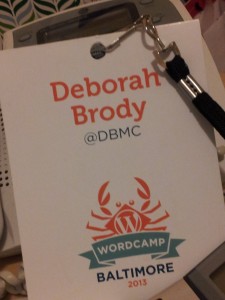Answer these basic questions
I was watching the midday news today. We had a lot of rain overnight and there was flooding in some areas. Apparently, there was even flooding in Rockville, where I live. A reporter was out somewhere in Rockville telling about how a car got stuck in a flooded road. Except she never said where in Rockville this road was located. And that’s what I really wanted (needed) to know: where exactly is it flooded so I can avoid the area.
Perhaps this reporter has forgotten her Journalism 101 class, which teaches that every story should answer these questions:
Who?
What?
Where?
Why?
When?
How?
In fact, the answers to these basic questions are the basis for any story, whether told by a reporter on TV or a public relations practitioner in a press release or a website copywriter. To answer those questions means to tell the most important part of any story. Everything else is additional detail and description that can make a story more compelling or interesting.
And yet, how many press releases are missing answers to these questions? How many websites don’t answer the why or the how of whatever product or service they are promoting?
If you want to succeed at storytelling and content marketing, you must answer each and every one of these questions. If you can’t, you need more information. If you won’t, you are probably trying to hide something or you didn’t do your homework.
Need to tell the complete story in your marketing materials? Contact me to see how we can work together to get beyond the basics.
About Deborah Brody
Deborah Brody writes and edits anything related to marketing communications. Most blog posts are written under the influence of caffeine.




